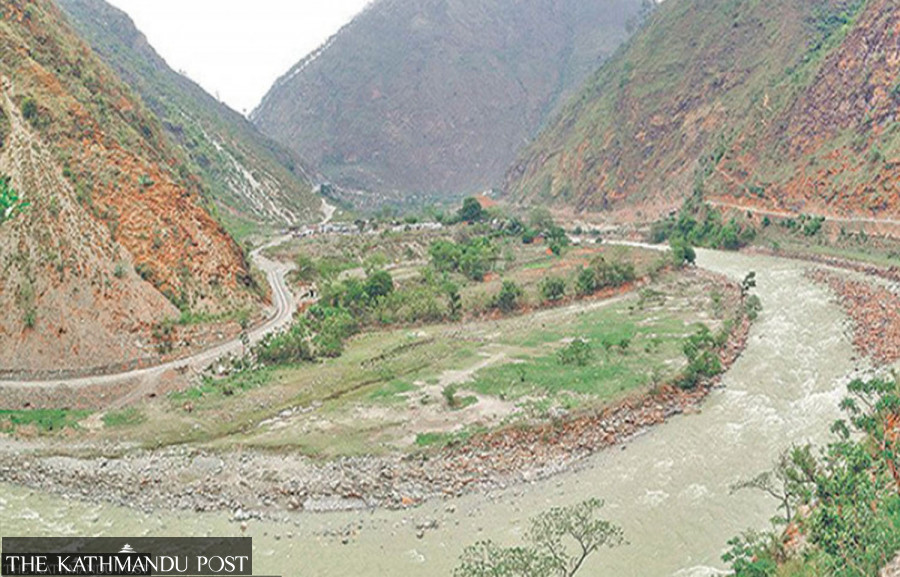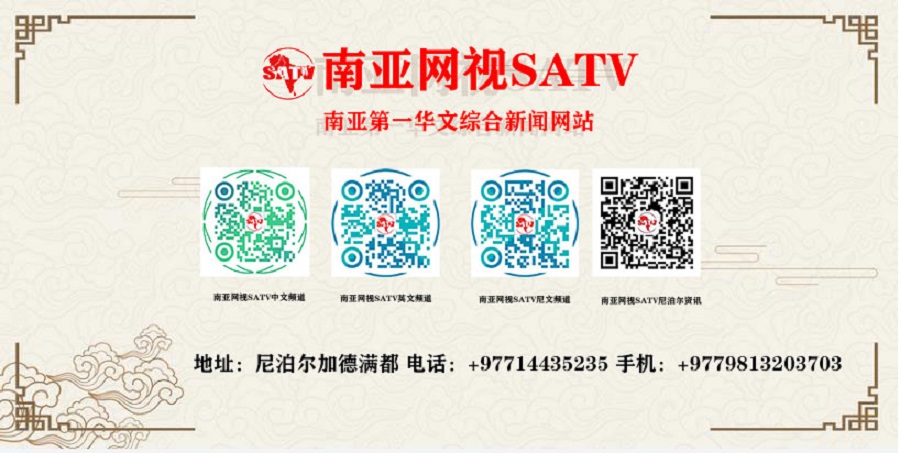
The Investment Board Nepal on Monday gave its nod to India’s state-owned NHPC Limited to study and develop two hydropower projects totalling 1,200MW in western Nepal.
The projects include 750MW West Seti Hydropower Project and 450MW Seti River (SR-6), a joint storage project.
The 52nd board meeting of the Investment Board, chaired by Prime Minister Sher Bahadur Deuba, took a decision to this effect, according to the Investment Board Nepal.
The board approved the draft of the memorandum of understanding to be signed with the Indian company, according to a statement by the Investment Board.
The NHPC Limited, an Indian government hydropower board under India’s Ministry of Power, had submitted a proposal in May to develop the projects.
The West Seti project, first envisioned some six decades ago, is located on the Seti River in farwestern Nepal. The proposed dam site is located 82 kilometres upstream of the confluence of the Seti and Karnali rivers, forming part of the Ganges basin.
The new project sites are located at elevations ranging from 550 to 920 metres and are spread across six districts.
The estimated cost of the project, according to the Investment Board, is $2.4 billion.
Multiple officials had confirmed to the Post in May that the Investment Board had received a formal proposal from the NHPC Limited, formerly known as National Hydroelectric Power Corporation, for the development of the projects.
Besides approving the MoU to be signed with the NHPC Limited, the board meeting also instructed the office of the IBN to initiate preparations for approving investment for the development of 679MW Lower Arun Hydropower Project.
The board also decided to negotiate with Himtal Hydropower Company Pvt Ltd to grant a survey licence to the company to develop the 327MW Upper Marsyangdi 2 Hydropower Project.
The IBN board appears to have attempted to balance Indian and Chinese investors as the West Seti and Lower Arun will be developed by the Indian companies while Chinese investors will be investing in the Upper Marsyangdi-2 in joint venture with Nepali investors.
India’s SJVN Limited which is also developing the 900MW Arun 3 project was awarded the Lower Arun project in July last year.
The three major Chinese companies—Sichuan Provincial Investment Group, Chengdu Xingcheng Investment Group and Qing Yuan Consulting Co—have joined hands with Butwal Power Company to develop Upper Marsyangdi-2, one of the three cascade projects being developed by this group.
When it comes to the West Seti and SR-6, the board decided to sign the MoU with the Indian company without competition.
When it was handed over to the China Three Gorges Corporation in 2012, it was given to the Chinese company through negotiations. But the Chinese company pulled out leaving the project’s future in doubt.
As Nepal and India are seeking to increase cooperation in the hydropower sector lately, the Indian state-owned company came up with the proposal to develop the West Seti projects.
Though Section 29 of the Public Private Partnership and Investment Act 2019 allows the government to award projects through negotiations, questions have been raised about the growing tendency of avoiding competition. If the proponent [promoter] could not be selected even after calling for expression of interest or request for proposal at least two times, the agency concerned may allow implementation of such a project through negotiation, the law says.
Former finance secretary Rameshore Khanal said that awarding projects through negotiations can be a good option as long as Nepal’s national interest is served.
“West Seti was awarded to the Chinese company through negotiations and the same has been done in the case of the Indian company,” he said. “We have to see whether the benefits offered by the Indian company are better than what the China Three Gorges had offered.”
The development comes after Nepal and India in early April issued a joint vision statement on energy, which talks about expanding mutually beneficial bilateral cooperation in the power sector including joint development of power generation projects in Nepal; development of cross-border transmission infrastructure; bi-directional power trade with appropriate access to electricity markets in both countries based on mutual benefits, market demand and applicable domestic regulations of each country; coordinated operation of national grids; and institutional cooperation in sharing latest operational information, technology and know-how.
Particularly, Indian state-owned companies have been more active and willing to develop hydropower projects in Nepal.
Meanwhile, the IBN has also decided to organise a Sustainable Infrastructure Investment Summit 2022 in the second week of September.













